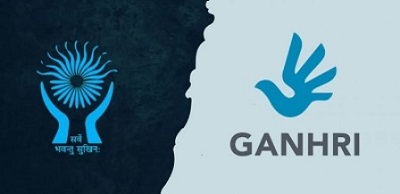Context
The accreditation of the National Human Rights Commission (NHRC) of India by the Global Alliance of National Human Rights Institutions (GANHRI) has been deferred for the second consecutive year, raising concerns about the commission's independence and effectiveness. This delay has significant implications as it bars the NHRC from representing India or voting at the UN Human Rights Council, underscoring the importance of accreditation in global human rights discourse. Established in 1993 under the Protection of Human Rights Act, the NHRC plays a pivotal role in safeguarding human rights within India.
Accrediting Agency: GANHRI and its Subcommittee on Accreditation (SCA)
GANHRI, representing approximately 120 national human rights institutions worldwide, reviews and accredits these bodies every five years based on the Paris Principles. The Subcommittee on Accreditation (SCA) categorizes member institutions into 'A' and 'B' groups, indicating full or partial compliance with these principles. As of November 29, 2023, 120 institutions were accredited, with 88 holding 'A' status, denoting full compliance.
The Paris Principles: Criteria for Effective Functioning
The Paris Principles, adopted by the UN General Assembly in 1993, establish minimum standards for national human rights institutions to ensure credibility and effectiveness. These principles encompass a broad mandate grounded in universal human rights norms, autonomy from government influence, independence guaranteed by law, pluralism in membership, adequate resources, and investigative powers. Moreover, they mandate the ability to receive complaints from various sources, including individuals, NGOs, and trade unions.
Implications of Losing Accreditation
Accreditation status directly impacts an NHRI's participation in international human rights forums such as the UN Human Rights Council and its subsidiary bodies. Institutions with 'A' status enjoy voting rights and eligibility for full GANHRI membership, whereas those with 'B' status have limited participation rights. Without accreditation, the NHRC cannot represent India at the UN Human Rights Council or hold governance positions within GANHRI, compromising India's international human rights engagement.
Reasons for Deferral and Concerns Raised
The decision to defer India's accreditation stems from concerns raised during the SCA meeting, including issues highlighted in previous reports. These concerns revolve around the NHRC's transparency in appointments, conflicts of interest, and the lack of minority and female representation within the commission. Additionally, human rights organizations, including Amnesty International and Human Rights Watch, expressed concerns about increasing restrictions on civic space and discrimination against minorities in India. UN human rights experts echoed these concerns, emphasizing attacks on minorities, media, and civil society.
India's Accreditation History and Review Process
Since its establishment in 1993, the NHRC has undergone periodic accreditation reviews by GANHRI. While initially accredited in 1999, the commission faced accreditation deferrals in 2016 and 2023 due to various reasons, including concerns over political affiliations and gender balance within the NHRC staff. Despite these challenges, the NHRC obtained 'A' status in subsequent reviews, reflecting its commitment to addressing accreditation criteria.
Conclusion
The deferral of India's NHRC accreditation for the second consecutive year underscores the importance of adhering to international human rights standards and principles. Addressing concerns raised by GANHRI and human rights organizations is crucial to restoring the NHRC's credibility and effectiveness. India's engagement with the accreditation process not only reflects its commitment to human rights but also its standing in the global human rights community. Moving forward, concerted efforts to address deficiencies and uphold the Paris Principles are essential for securing the NHRC's accreditation and reaffirming India's commitment to promoting and protecting human rights.
|
Probable Questions for UPSC Mains Exam
|
Source – Indian Express









